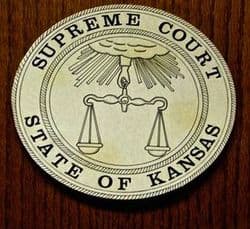In what is being called a groundbreaking decision, the Kansas Supreme Court ruled Friday that the nonbiological mother of two children who was in a long-term lesbian relationship can have the same parental rights as the biological mother.
 The case involves Kelly Goudschaal (who carried the children after undergoing artificial insemination) and her former partner, Marci Frazier. The Kansas City Star reports:
The case involves Kelly Goudschaal (who carried the children after undergoing artificial insemination) and her former partner, Marci Frazier. The Kansas City Star reports:
The couple had signed a co-parenting agreement that stated Frazier's “relationship with the children should be protected and promoted,” and that they intended “to jointly and equally share parental responsibility.” After they separated, Goudschaal began limiting Frazier's visitations and moved with the children to Texas.
Frazier filed a legal action seeking to have the parenting agreement enforced. After a trial, Johnson County District Judge Kevin Moriarty found that joint custody was “in the best interests of the children.”
Goudschaal was granted residential custody. Frazier was ordered to pay monthly child support and was granted “reasonable parenting time.”
As for the court's decision:
The Supreme Court said in Friday's decision: “We have declared that the public policy in Kansas requires our courts to act in the best interests of the children when determining the legal obligations to be imposed and the rights to be conferred in the mother and child relationship.”
The court said that “what Goudschaal really wants is to renege on the co-parenting agreement without regard to the rights of or harm to the children, all in the name of constitutionally protected parental rights. “Surely, her constitutional rights do not stretch that far.”
Not enforcing the parenting agreement would deny the children the opportunity to have two parents as children in a traditional marriage would have, according to the court.
“The agreement is not injurious to the public because it provides the children with the resources of two persons, rather than leaving them as the fatherless children of an artificially inseminated mother,” the court ruled.



